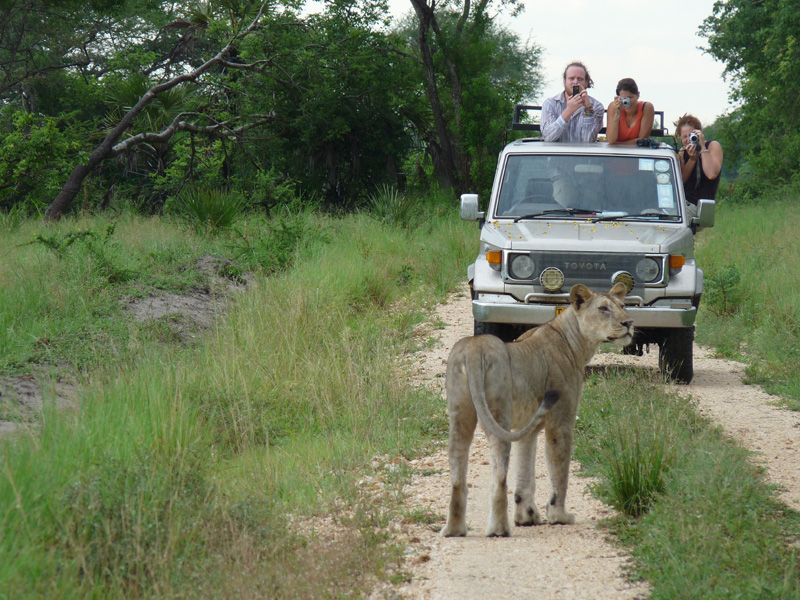The Plant Ecology group of the Institute for Integrative Biology has been doing research in Saadani National Park, Tanzania, since the year 2000. When the first PhD students started there was nothing here, no house to live in, no infrastructure to drive on, no water to wash with and no cellular network to phone by. They had to start from scratch and managed to build up a now already ten years lasting research initiative. I am one of the two third generation PhD students to be working here together with my colleague Annette.
For the first two years of my PhD I travel to Saadani off and on for three to four months. The coast of Tanzania experiences two dry seasons, in which we do our fieldwork, as the roads are inaccessible during the wet seasons. My PhD focuses on nutrient cycling in the savanna ecosystem and the effects herbivores have on the spatial distribution of these nutrients. As they eat vegetation in a certain location and produce dung in another location, they transport nutrients around the ecosystem.
My main aim is to map these in- and output fluxes over the area after which we will have a better understanding of the nutrient balance in savannas. In the field I have set up multiple experiments which I monitor for a certain period of time. This monitoring consists of collecting data on vegetation composition, plant biomass removed by herbivores, fire burning practices, growth of plants, distribution of herbivore dung and so on. I collect many vegetation, soil and dung samples, which I later analyze for nutrients in the lab of the ETH. During the months I spent at the ETH in between field seasons I am behind my computer doing statistics on my collected data sets and always preparing for the next field season.
Doing fieldwork in Tanzania is adventurous, rewarding and of course just totally awesome. It is, however, never without its challenges, with the first one starting before even arriving in the country. As a researcher you need to have an official research permit before entering Tanzania and the National Park you plan to work in. However, getting a research permit is one of the big bureaucratic pitfalls we try not to fall into, while breaking both our legs, leaving us unable to get out of. You need to apply for a research permit at the Tanzanian Wildlife Research Institute (TAWIRI) by sending in your research proposal and an application form, three months before you plan to start your fieldwork. TAWIRI is scheduled to have meetings, in which research applications are discussed, four times a year. However, it seems that these meeting dates are not written in stone and may vary due to unclear reasons. It could just be the case that in the year you are applying, they, for some unforeseen reason just plan two meetings for the whole year.
However, regardless of that, they will still tell you nicely in an email that the meeting is scheduled for the middle of a certain month to shamelessly tell you two months after that month, and after countless of emails from you and unclear phone calls with secretaries who apparently have no idea what is going on in their organisation, the meeting was postponed to three months later. And of course you will have already bought your flight ticket and will end up in the country on a normal tourist visa. Once in the National Park, the chief park warden will not understand why you are there without a research permit and will tell you, that as a tourist you need to pay normal visitor fees and are not allowed to get out of your car.



Its a kind of bureaucracy which our country is trying to get rid of, I apologize to these researchers on behalf of our fellow snail moving workers!
But still any research to any country must be scrutinized and not sanctioned as easily as we think, visitors should understand that our country is just like any other country around the world, you have to undergo that kind of questioning and scrutiny.
I suppose Tanzanian researchers wishing to undertake any research in Netherlands will and might be scrutinized of their intention and permits would be issued once their intention are viewed are genuine and not harmful to Netherlands.